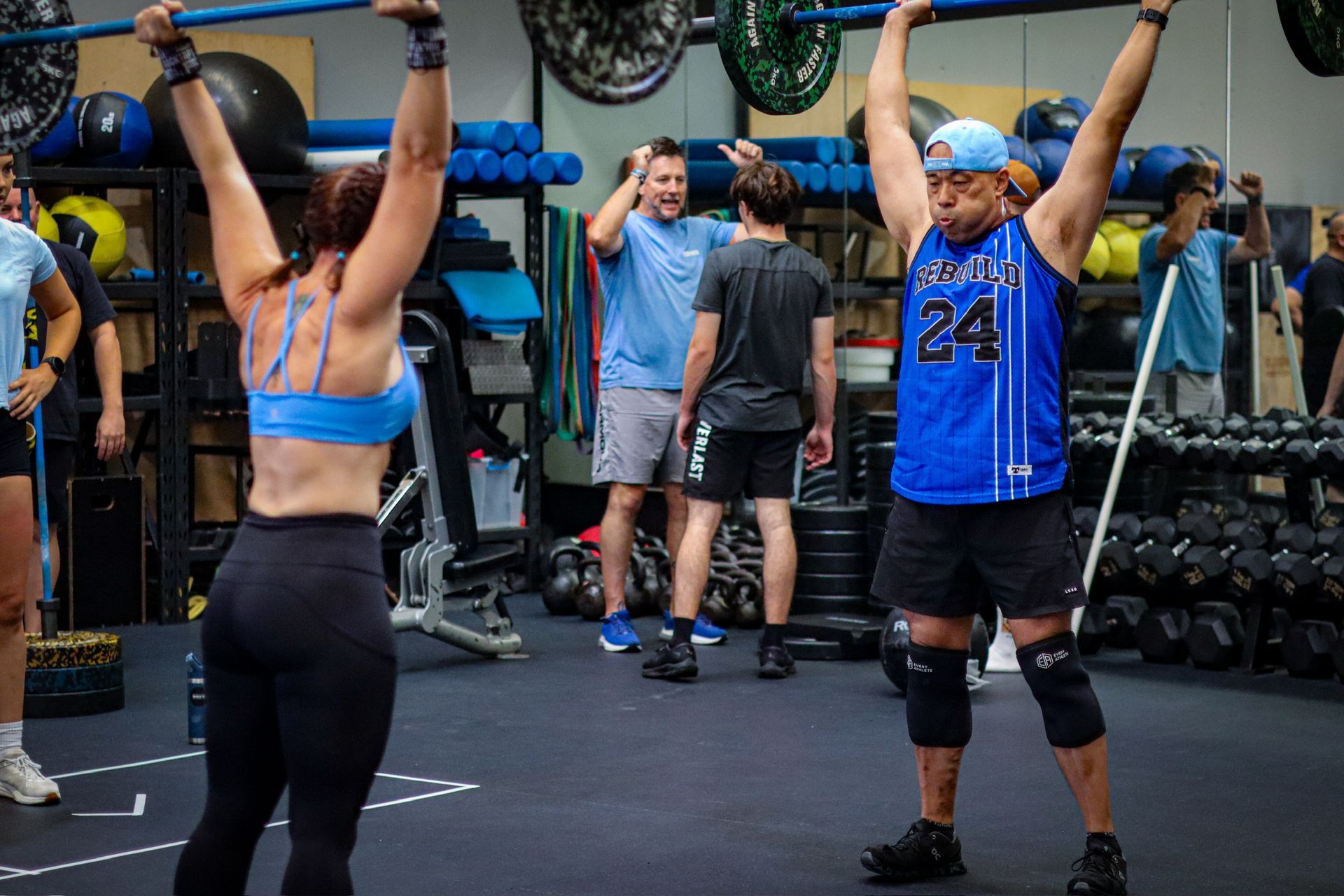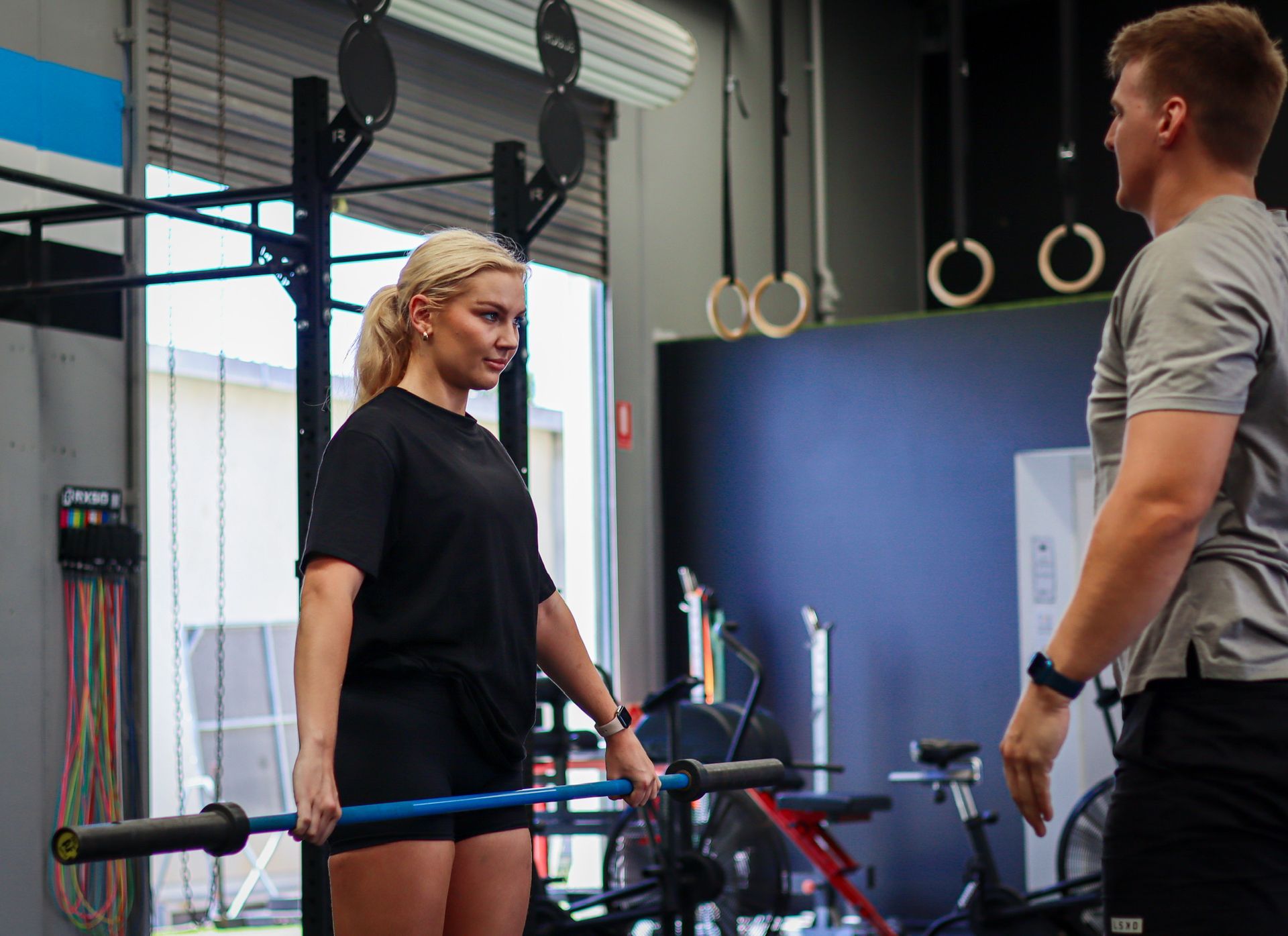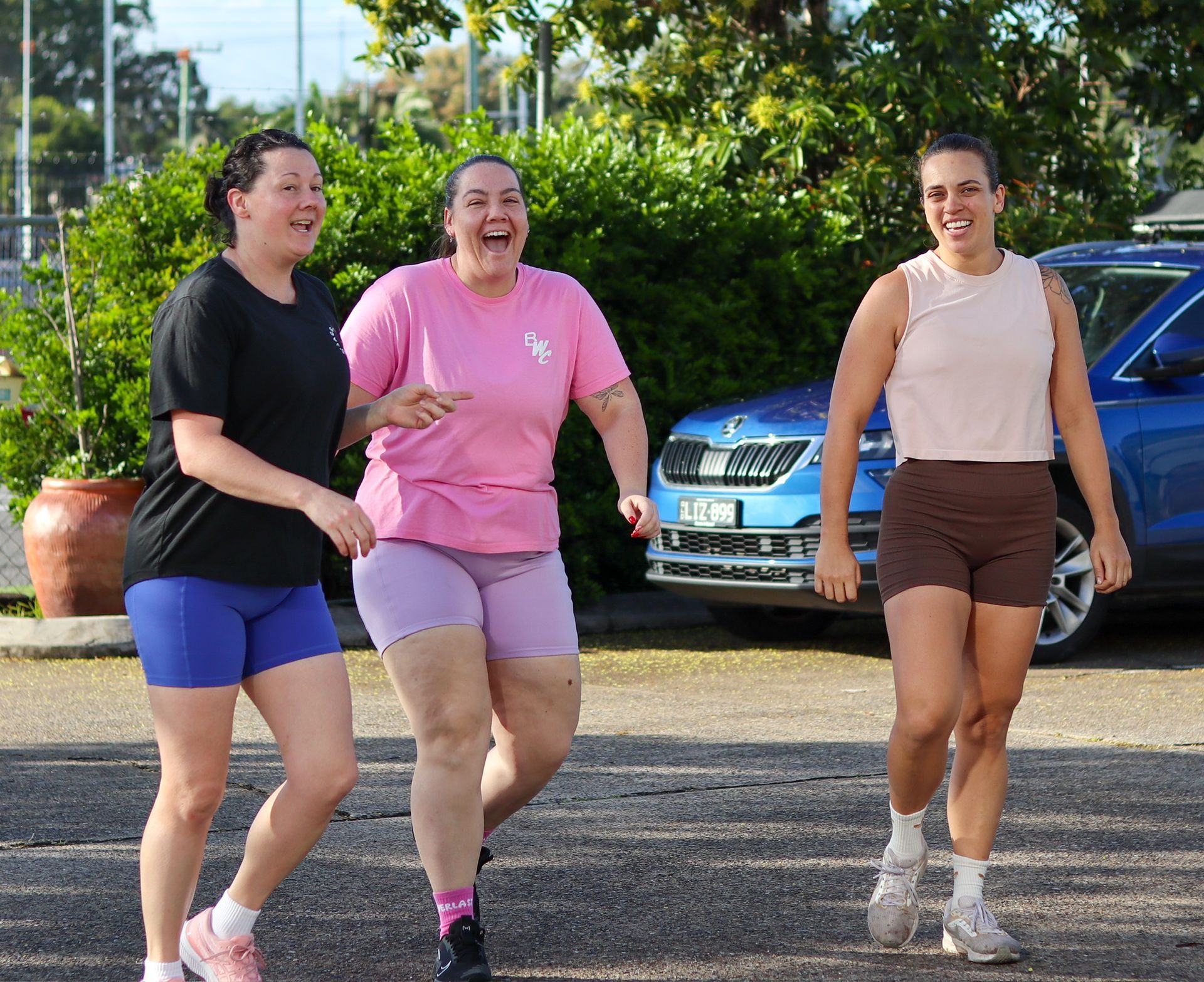Damage Limitation. If You Can't Make It Better, Can We Make It A Little Less Worse?
You spend all week adhering to your nutrition, your training and your goals. And then it's the weekend, someone's birthday, some event pops up - and it can feel like there's something new every week to throw you off your goals. This week on the Rebuild Health and Fitness podcast, Sean and James discuss the ways in which we can look at this situation differently, how we can overcome these challenges, and how we can make things a little easier for ourselves. This podcast is all about, as James says, “How to mitigate challenges and stay away from the all or nothing approach in life.” The need to look at things differentlyIt’s natural to feel demotivated when goals we’ve set for ourselves don’t work out, but this should never stop us from pushing ourselves. There are going to be times when things just don’t go your way but this is just how life functions, there are highs and then there are lows. “We get so stuck in thinking we need to do everything perfectly to make progress,' Sean adds. 'One slip up, and everyone throws their toys out the pram and thinks, ‘that’s it,’ and they’re never going to get any better but, it's life.”With regard to learning how to look at things differently, James speaks about a challenge they’re currently doing at the gym – Rise Challenge and also mentions the ways in which people are moving away from the actual purpose of the challenge and making it about something else entirely.“We're doing this rise challenge at the gym where it’s like based around six habits and you get points each day for the habits you tick off. These are reflection, well-being, nutrition, hydration, training, and sleep. Though people are ticking off their points, when they start to fall behind on the leader board, they’re like, ‘Forget it.’ Instead of looking at leading themselves and at how every point they tick off, they’re a point closer to reaching their goal. But they go all, ‘Oh I can’t win the challenge,’ and they leave it all.” He continues: “Do you hear yourself and how stupid that sounds? Someone could finish on 1000 points and you could finish on 200 but you’re still 200 points closer to where you want to be.”Along with looking at things differently, we also need to program ourselves to be content with not doing as much as we’ve aimed to sometimes. Putting in that 30% when you hoped you put in 100% is still better than not attempting an act at all – the all or nothing approach tends to dampen the spirits of most people. James shares, “So many people are all or nothing. Like if I can’t go to the gym five times a week, I won’t go at all. What do you mean? What about four times? What about three times? What about two? What about one? How about getting there first. There are people who say, ‘Oh, I couldn’t walk 10,000 steps so I didn’t walk any.’ What are you talking about? What about all the other steps in between. Humans are so emotional in the way that they do things where they adapt to this all or nothing approach, they just can’t adhere to things because they make life so hard for themselves.” Consistency > intensityIn the simplest of terms, all this means is setting high goals or working out like crazy alone won’t give you the results you’re aiming for. Unless and until you’re setting achievable targets for yourself, and are consistent with the plan you’ve settled for, nothing will change. James explains further: “Consistency will always trump intensity over any way, shape or form. People want the best program, they want to see the best nutritionist, but if you don’t turn up to the gym or can’t do the basics right, you're never going to be where you want to be. If you can’t stick to 1,200 calories a day, can you stick to somewhere near your maintenance? 100 calories under your maintenance which is like 1,800 calories are easy, so let’s do that for 6 months. I can guarantee you'll be doing a lot better there than you would’ve been doing 1,200 calories for a couple of weeks. Planning your meals and eating bigger meals to avoid snackingThere is always something that will come up to hijack your health goals - as the coaches say, 'there's no such thing as a perfect week'. From not having time to cook the same day, to going out for birthdays and celebrations multiple times a week – these are situations that in some cases may be unavoidable, but are completely manageable. Using that day off to cook in advance for the entire week or planning the meal you’re going to have at a restaurant in advance will help you avoid being controlled by hunger when it comes to decision-making time. “If you know you're going to go out to eat, plan ahead what you’re going to eat and what your options are. You can maybe work the calories out to some extent. If you’re going out, I suggest having a starter and main, or main and dessert, do not have a starter, main and dessert. Stay away from pastas and white sauces, because they are just really high in calories. There's nothing wrong with carbs but restaurants just don’t care about your diet, they’re trying to make their food taste as good as possible. If you can pick a lean protein sauce, maybe some vegetable – you’re good. You should also be mindful about how much you’re eating outside,” says James. Another issue the boys discuss is why people find the need to snack during the day. In their opinion, you should just be having larger meals to avoid feeling hungry later and then snacking on food with no nutritional values. “People don’t eat big enough meals, that’s why they end up snacking,' says James. 'Like they’ll have dinner and then they’ll say, ‘Oh, I want to have a snack now.’ Why? Your meal clearly wasn’t big enough to keep you satisfied. You had breakfast in the morning and then by 9am you're hungry again, just have a bigger breakfast. Your snacks are around 200-300 calories anyway so add those calories to your meals instead.” Sean agrees: “You could have snacks and still not be satisfied though they’re higher in calories. Instead, you could just have an apple, I know people are like, ‘Oh but it’s a fruit!’ Just snack on fruit and you’ll feel more satisfied.” Never miss a MondayThe adage of 'start as you wish to proceed' is relevant for training on Mondays. Sean and James recommend getting into the gym from Monday to start the week right.“I'm a never miss a Monday sort of guy, I believe it’s very important. We'd do weekly calls sometimes where if someone hasn’t been to the gym in a few days, they get a phone call,' explains James. 'The number of times people have said, ‘Oh, I missed Monday and Tuesday, and yeah then the week was done.’ Well, the week isn’t done, you still have Wednesday, Thursday, Friday, Saturday, and Sunday. What about all the other days? If you train on a Monday, you will be a more consistent trainer. It’s not about coming in and smashing the workout, it's about coming in and doing something at least.”“No one trains on a Monday here and doesn’t train for the rest of the week,” adds Sean. At the end of the day, all that’s required to put any sort of idea into play is willpower. As James says, “You need to have some discipline in your life, in order to get absolutely anywhere. You need to have the ability to say no to things.” And this stands true in numerous cases, the willpower to say no to eating outside, to be able to get up and take yourself to the gym to get that workout done, to want to snack but reminding yourself of your goals.Tune in to the podcast on Spotify or Apple, or listen below.
Previous Blogs




